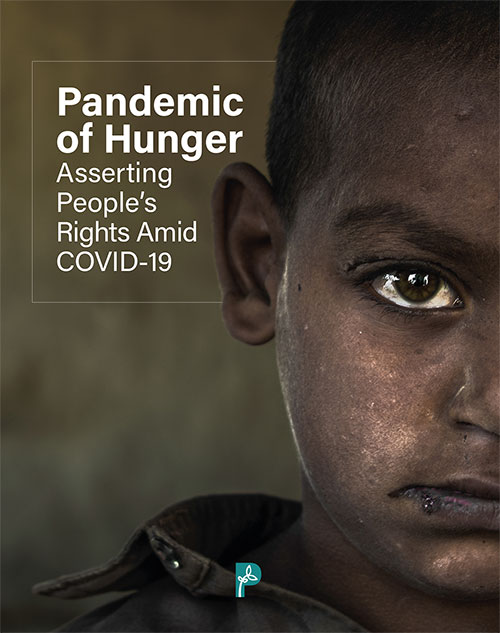Quezon City, Philippines—PAN Asia Pacific (PANAP) today launched the book “Pandemic of Hunger: Asserting People’s Rights Amid COVID-19,” as part of the 16 Days of Global Action on Agroecology. The 16 Days of Global Action, a campaign centered this year on the need for a fundamental shift in food systems, culminates on October 16, World Hunger Day—the counterpoint of food sovereignty advocates to the Food and Agriculture Organization’s World Food Day.
The book launch was held in a conference by Peasant Movement of the Philippines (KMP) entitled “Land, Food Change: Advancing People-Centred Land Use for Self-Sustaining Food Systems.” KMP is one of 11 PANAP partners who are featured in the book, which contains a collection of interviews with people’s movement and CSO leaders across the Asia Pacific region on the impact of COVID-19 on food producers, among others.
“The materials compiled here are the product of our research, monitoring and interviews as we attempt to document COVID-19’s impacts on food security and how rural communities are responding to the crisis and asserting their right to food, including through the promotion and practice of agroecology,” said Sarojeni Rengam, PANAP executive director in the book’s introduction.
“Through this book, we hope to share our analysis and stand on COVID-19 and how it is deeply rooted to environmental plunder and destructive corporate agriculture; how the pandemic is undermining food sovereignty and deepening the structural flaws of the prevailing neoliberal and profit-driven system of food and agricultural production; and how the crisis is being used by repressive regimes in the region to inflict even harsher blows to human rights,” she added.
The book’s final chapter deals with steps needed to achieve “essential change,” including a holistic discussion on health, environment and the immune system; a list of immediate and long-term demands by rural peoples; and an argument for agroecology as one of the ways forward.
“The COVID-19 crisis is reaffirming the legitimacy and urgency of agroecology as a long existing and viable, but systematically undermined alternative to the prevalent input-intensive, chemical-based agricultural systems. But beyond its biophysical and ecological aspects, PANAP looks at agroecology as being strongly grounded on the environmental; social and cultural; economic; and political dimensions of sustainability,” a part of the book reads.
In the book, the regional network also stressed that agroecology can only be truly viable and beneficial if pursued in the context of thoroughgoing agrarian reform and long-term rural development. “Agroecology can only thrive when land and other productive resources necessary to produce food and other agricultural products are unencumbered by corporate or landlord monopoly control,” reads the book in its discussion on people’s demands.
The book is recommended for advocates, researchers, and policymakers, as well as the general public, who want to understand how this pandemic impacts food producers, and why there is hope that from this crisis stronger people’s movements can emerge that will struggle to make aspirations for a better world a reality. ###
Download the book at https://files.panap.net/resources/Pandemic-of-Hunger.pdf








Discussion about this post